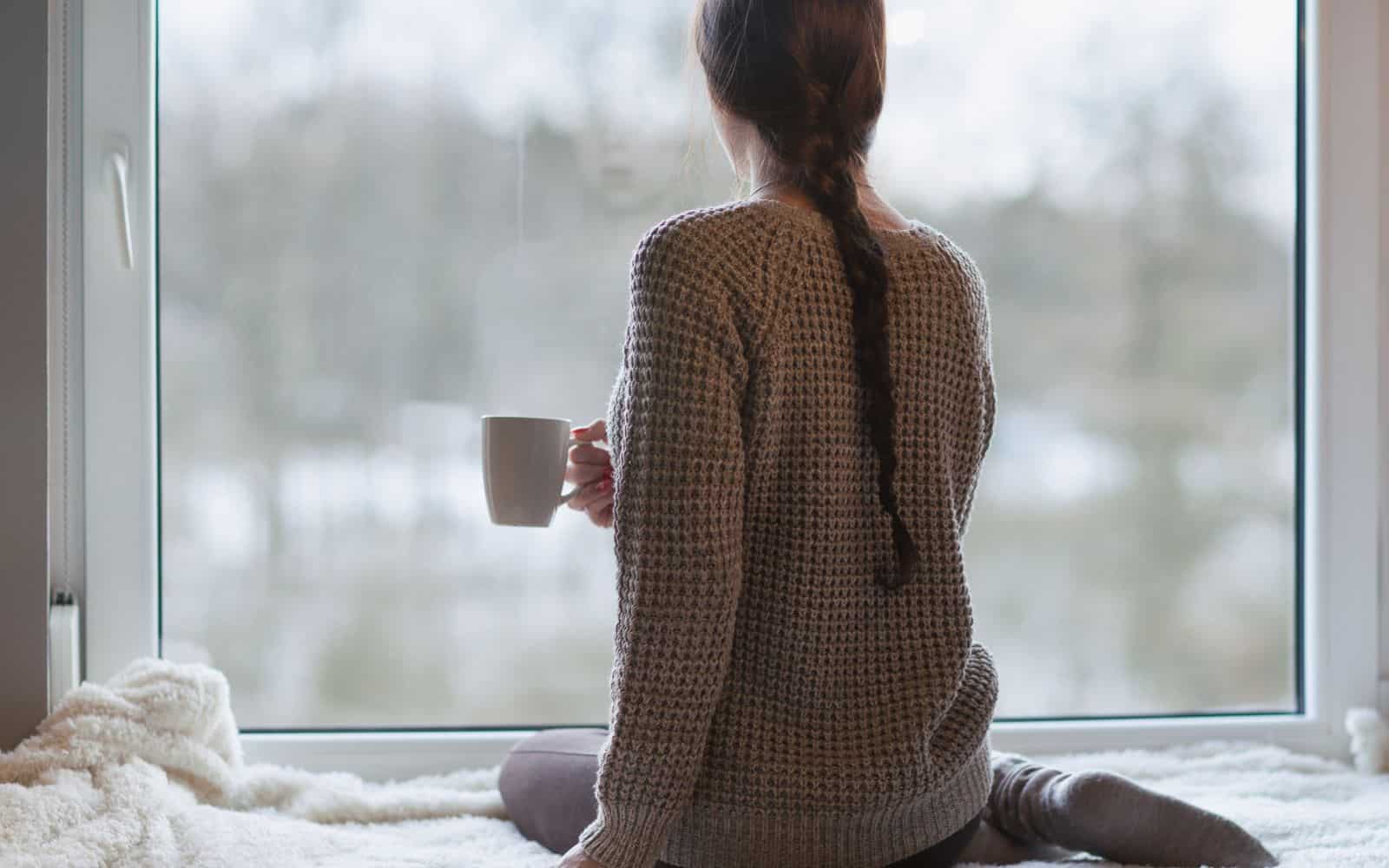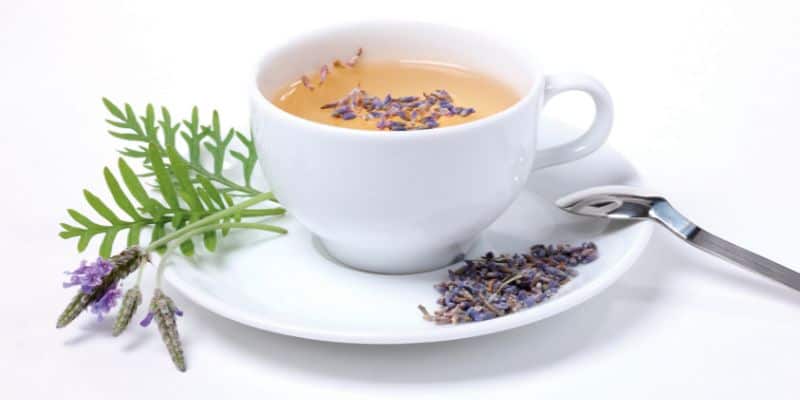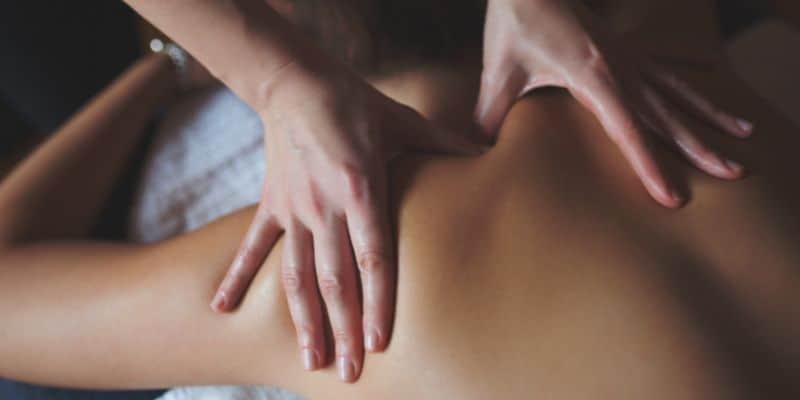11 Best Teas For Anxiety To Help You Chill

Disclosure: This post may contain affiliate links. If you click on a link we may make a small commission at no extra cost to you. You can read the full disclosure here
Best Teas For Anxiety
Anxiety is a feeling of apprehension, uncertainty, and fear resulting from the anticipation of real or imagined danger. It can cause physical symptoms, such as a pounding heart and sweating. This can be a normal and adaptive response to stress, but it can also become a disorder if it is severe and persistent.
Why Can Drinking Tea Make You Feel Happy
There are several reasons why tea can make you feel happy. First, tea contains caffeine, which is a known mood booster. Additionally, the act of brewing and drinking tea can be calming and soothing, providing a moment of peace on a busy day. The warmth of the cup can also be comforting. Also, many teas contain compounds that have been linked with positive mental health benefits. All of these factors together can create a sense of happiness and well-being.
Our society has become increasingly fast-paced and stressful as we are constantly bombarded with information and stimulation.
This can lead to many of us feeling overwhelmed and stressed out: inspiring many of us to search for a natural remedy to balance our moods and help us to relax. While there are many ways to reduce stress and improve relaxation tea is surely one of the easiest and most enjoyable.
So let’s have a look at the best teas for anxiety and see which ones will work best for you.
11 Best Teas For Anxiety

Tea is not only a great stress buster but it can also be a wonderful way to kick back, unwind and enjoy pleasant conversations with loved ones. There are many super teas that can help with anxiety, but some are more effective than others, so let’s check them out.
1. Green Tea
Let’s start with the true teas; These are the teas that are made from the Camellia sinensis plant and include green tea, black tea, white tea, oolong tea, and pu-erh tea. These teas all differ in terms of their processing and as a result, they also vary in taste, aroma, and appearance.
True teas all contain compounds such as caffeine, catechins, and L-theanine, which can have effects on the brain and nervous system and are said to help with anxiety, stress, and depression. Green tea is believed to be the most potent as it is made from the youngest tea leaves. So it seems it is not without good reason that green tea is the most widely consumed beverage in the world after water.
2. Chamomile Tea
Chamomile tea has long been used as a natural remedy for anxiety. The herbal brew is thought to work by binding to certain receptors in the brain that are responsible for regulating mood and stress levels. This action helps to promote a sense of relaxation and well-being, making it an effective treatment for anxiety. It is perhaps most renowned for its calming, sleep-inducing effects and its ability to help improve overall sleep quality.
Chamomile makes a wonderfully soothing aromatic brew and is generally safe to drink for most people. However, it is worth noting that herbal tisanes can interact with some medications. So if you’re thinking about using chamomile tea or any other herbal remedies to treat your anxiety, it’s important to talk to your doctor first to make sure it’s safe for you.
3. Fennel Tea
Fennel tea is brewed using the seeds of the fennel plant. This plant is native to the Mediterranean region and has been used for centuries as a medicinal herb. It has a number of potential health benefits, including reducing anxiety. One of the most common uses of fennel tea is as a natural remedy for anxiety and stress relief.
Fennel tea is also thought to help with digestion, and as digestive issues can be a side effect of anxiety then consuming warm fennel tea may help to soothe your gastrointestinal system as well as your mind.
4. Lavender Tea
Deliciously caffeine free and with a wonderfully distinctive aromatic fragrance, lavender tea is both relaxing and soothing. The tea is said to have a calming effect on emotions and helps to relieve stress, anxiety, and mild depression. It has a long history of use as a medicinal herb and is rich in antioxidants and anti-inflammatory properties. It also contains compounds that have been shown to promote tranquility and improve sleep quality.
Lavender tea has a calming effect on the drinker, making it perfect for unwinding at the end of a long day or for soothing nerves before an important event. The scent of lavender is also known to be relaxing, so sipping on a cup of lavender tea can help to ease stress and tension and ease you into a restful night of sleep.
5. Lemon Balm Tea
Lemon balm tea has long been used as a calming and anxiety-reducing beverage. The plant lemon balm (Melissa officinalis) is a member of the mint family and has traditionally been ingested in various forms to help promote relaxation. Its restorative lemony aroma is often used as a sleep aid and has been known to help with agitation, nervousness, irritability, restlessness, and mild depression.
I find that lemon balm tea helps to promote a sense of well-being and relaxation. Its calming and soothing properties make it the perfect drink to enjoy in the evening before bedtime, while its refreshing flavor also makes it a great way to wake up in the morning and kick start the day.
6. Licorice Root Tea
There are few things in this world more delicious than a warm cup of licorice tea. The sweet, slightly anise-flavored beverage is the perfect way to relax after a long day. I love licorice tea because it is so comforting and it also offers a whole host of benefits making it a great choice for those looking for a healthy beverage.
Licorice root tea may also be effective in the treatment of stress and anxiety. It is thought to work by reducing stress hormone levels which have a calming effect on the nervous system and thereby improve symptoms of anxiety. However, more research is needed to confirm these findings.
7. Passionflower Tea
Passionflower tea is brewed using the leaves and flowers of the passion flower plant. This plant is native to the Americas and has been used traditionally for its calming effect and to help improve sleep quality. It is thought to increase levels of GABA in the brain. This neurotransmitter plays an important role in regulating anxiety and reducing stress.
Passionflower tea has a mild, slightly floral flavor and can be enjoyed hot or cold. It blends well with other herbal infusions and for a touch of sweetness, try it with a little honey. It is caffeine-free so can be appreciated at any time of day.
8. Peppermint Tea
The benefits of peppermint tea have been widely studied, and it is generally accepted that the tea can help to relieve symptoms of anxiety. The scent of peppermint has been shown to have a calming effect on the body, and the tea itself contains compounds that can help to relax the muscles and reduce tension. The menthol in peppermint acts as a muscle relaxant and is known for its ability to aid digestion and soothe tummy troubles which are often experienced as a side effect of stress and anxiety.
There is something about peppermint tea that is just so refreshing. I love the taste and the way it makes me feel. The effects of this delicious brew are both calming and comforting, and I just can’t get enough of it. I’m definitely a fan of this delicious beverage!
9. Rosemary Tea
Rosemary tea has been shown to have a calming effect on the nervous system, which can help reduce anxiety. The herb also has antioxidant and anti-inflammatory properties, which can help to protect the body against stress. It has an almost savory pine flavor with a subtle minty edge and a subtle lemony undertone. It can be enjoyed as needed, to help reduce anxiety, lift the mood, and promote relaxation.
Studies support the benefits rosemary has for mental function, making it an excellent choice for many in times of increased stress. However, caution is advised if you are pregnant, taking medication, or have allergies – seek medical advice first. Rosemary is also useful for relief from headaches, muscle cramps, and digestive complaints.
10. St. John’s Wort Tea
St. John’s Wort tea may help to reduce symptoms of anxiety, stress, and depression. People have been using the dried herb for centuries as it is believed to increase the levels of several chemical messengers in the brain which can help to regulate mood.
The tea is said to have a mild slightly bitter taste that is comparable to black tea. It is said to blend well with a variety of other flavors. It is important to note that St. John’s wort may interact with other medications, so it is important to speak with a healthcare provider before taking this herb.
11. Valarian Root Tea
Valerian tea is an herbal infusion made from the roots of the valerian plant. It has a strong, slightly bitter taste and is often used as a natural remedy for insomnia and anxiety. Some people find that it helps them to relax and fall asleep more easily, while others find that it simply makes them feel calmer.
Valerian tea contains a number of compounds that may contribute to its sedative effects, making it an ideal choice for those who have trouble falling asleep due to racing thoughts or those who simply need a little help winding down. Valerian root may interact with other medications and can leave some feeling drowsy – so as with any herbal infusion it’s best to speak with a healthcare professional before consuming.
Alternative Natural Remedies To Help Reduce Anxiety

When feeling anxious, we may find relief in consuming a calming beverage. Sipping on a relaxing brew can give us a break in focus from the source of anxiety as well as give us time to reset and recenter ourselves. This coping mechanism may be especially useful “in the moment”, but if we need other natural approaches to help reduce anxiety and keep it at bay then what other options do we have?
- Exercise – Especially when done outdoors, exercise helps to release endorphins, which can have a mood-boosting effect as well as be a distraction from anxious thoughts. Being in nature has been shown to have a calming effect on the mind, and so combining exercise with this type of environment may create a more effective treatment for anxiety. It also helps improve sleep quality, which can further reduce anxiety levels.
- Prioritize sleep – When it comes to managing anxiety, one of the most important things that you can do is to make sure that you are getting enough sleep. Sleep gives your body and mind a chance to rest and recover from the stresses of the day, and it can be an important part of managing your anxiety levels.
- Eat a balanced diet and stay hydrated – When the body is properly nourished, it is better able to cope with stress. Eating a diet that includes plenty of fruits, vegetables, and whole grains can help the body to function at its best. Staying hydrated by drinking plenty of water is also important for health and well-being.
- Meditation, Mindfulness practice, Breathwork – Mindfulness is the practice of present moment awareness. It involves paying attention to your thoughts, feelings, and sensations in the present moment without judgment. Breathwork is a type of mindfulness practice that involves focusing on your breath and using specific breathing techniques to cope with stress.
- Complementary Therapies – such as aromatherapy, massage, acupuncture, and hypnotherapy. These therapies can help to reduce anxiety by promoting relaxation and reducing stress.
- Journaling – When you journal, you are able to process your thoughts and feelings in a safe and private space. This can help you to understand your anxiety and develop healthy coping mechanisms. Additionally, journaling can help you to identify any triggers for your anxiety.
- Distraction techniques – such as reading, music, yoga, and spending time with animals. These activities can help to take our minds off of the things that are causing us anxiety and help us to relax. Redirecting attention away from anxious thoughts and feelings can help to provide relief.
- Weighted blankets – Weighted blankets are a type of therapeutic tool that can be used to help people with anxiety. The blankets work by providing deep pressure input to the user, which can help to calm and relax the nervous system. The weight of the blanket can help to provide a sense of security and comfort which can be helpful in reducing anxiety symptoms.
- Enlist support – There are a few ways that you can enlist support for your anxiety. You can talk to your friends and family about what you’re going through and how they can help you. You can also seek out professional help from a therapist or counselor. Another way to get support is to join a support group for people with anxiety. This can be a great way to meet other people who understand what you’re going through and can offer help and advice.
Conclusion
In conclusion, tea is a delicious and healthy beverage that can have many positive effects on the drinker. If you’re looking for a natural way to reduce anxiety, consider trying one of these tasty brews to enjoy its calming effect.
They can be drunk before bed to ease into sleep or in the morning to start the day off right, whatever and whenever works for you. Just remember to consult with your doctor before trying any new herbal remedies, especially if you’re already taking medication for anxiety.
Taking a pause during the day to drink tea is a simple and effective way to relax, and it has become a part of my daily routine. I would encourage others to give it a try.
How Can I Calm My Anxiety Fast?
There are several ways to calm anxiety fast. Some people find that deep breathing exercises help to calm the body and mind. Others find that progressive muscle relaxation helps to reduce tension in the body. Additionally, some people find that guided imagery or visualization can be helpful in calming anxiety quite quickly.
Are Teas For Anxiety Readily Available At Coffe Shops?
Chamomile and lavender are two popular options that are often used to help with anxiety. While you may well be able to find these options at your local coffee shop check with the staff to see if they have other varieties available as you may want to expand your horizons.
How Should I Choose The Right Tea For Me For Anxiety?
There are many different types of tea, and each type has its own unique set of benefits. When it comes to anxiety, there are a few key things to look for in a tea. First and foremost, you want to find a tea that contains ingredients that have been shown to be effective in reducing anxiety. Select a flavor that is soothing and pleasant to try and be prepared to experiment with different types of tea until you find one that provides the desired effect for you.






